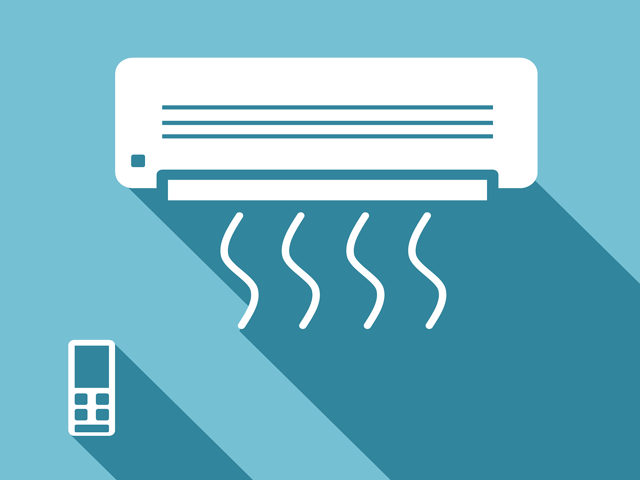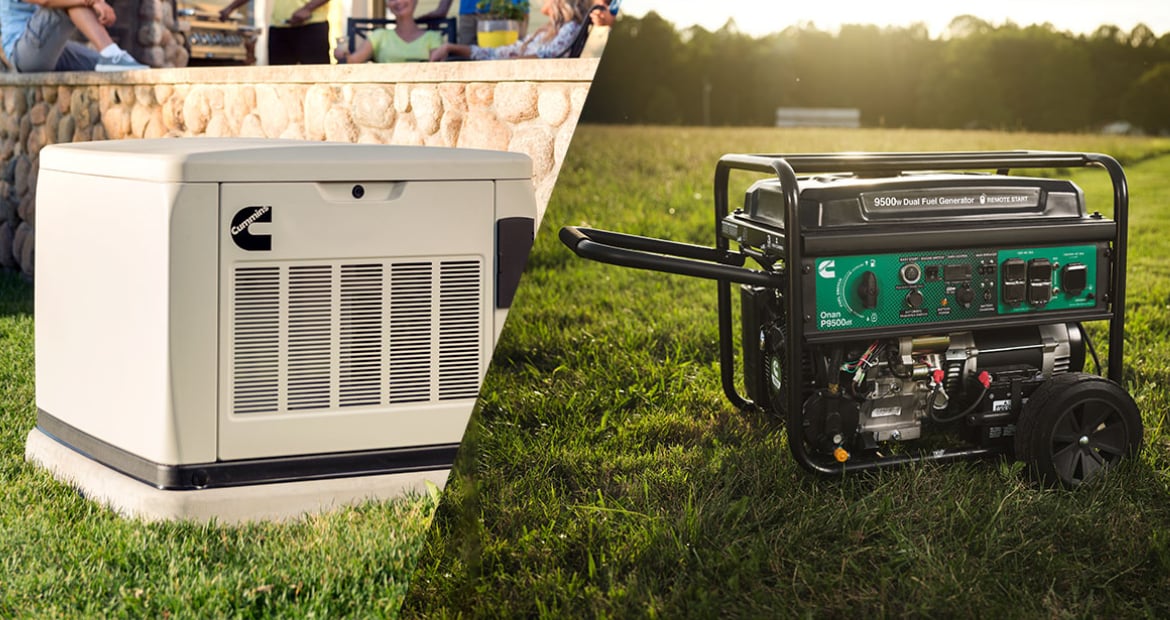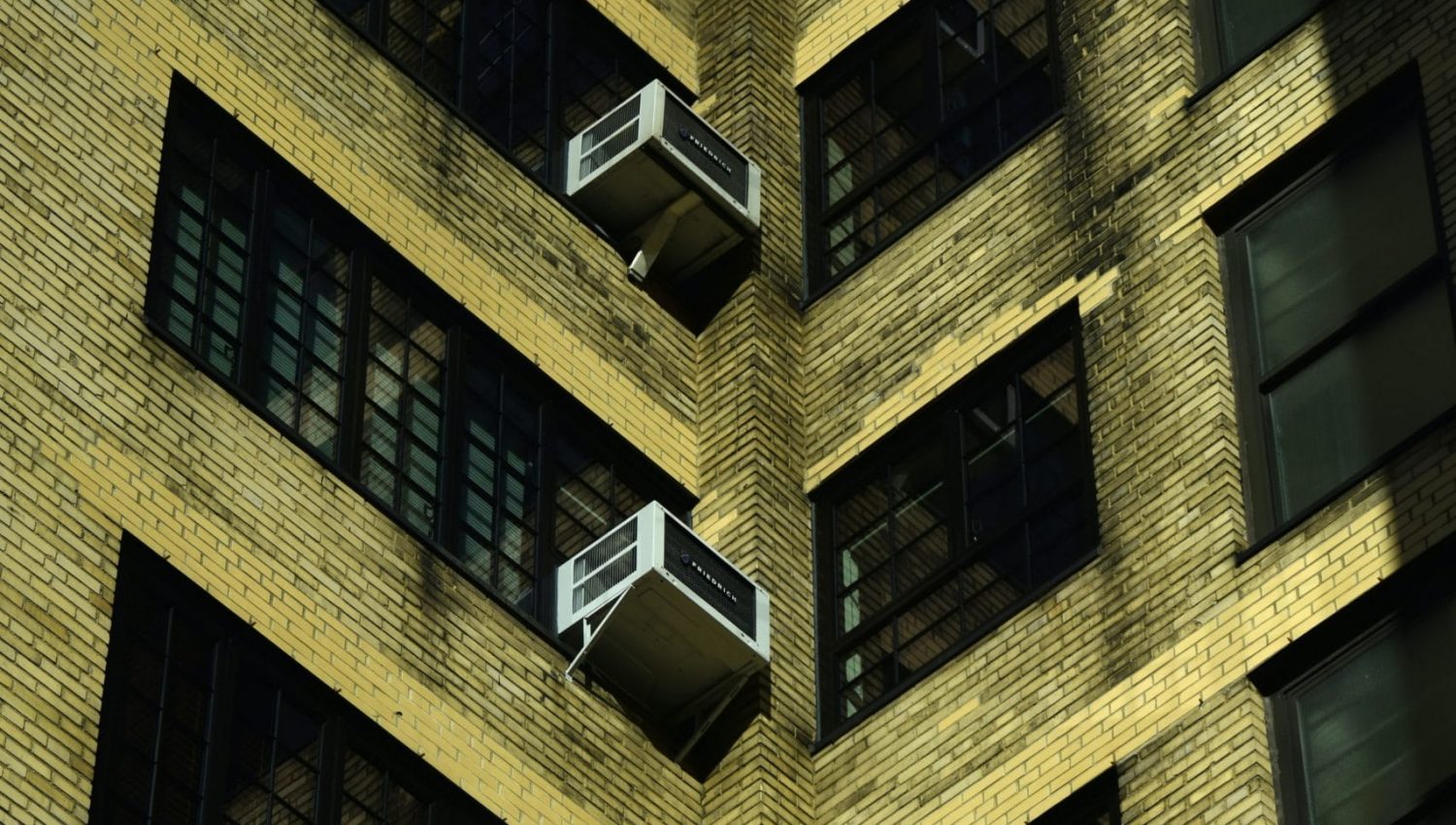When power outages occur, you may be looking for a generator to provide backup power for your AC, right? Well, this post will help you decide what size generator to run AC with.
We can help you find the right generator for your air conditioner anytime you need one on Linquip. You can learn a lot about generators on Linquip. You may be interested in finding out more about these devices by reading Linquip’s article, “Generator: Working Principles, Function & Diagram“.
Did you work with them in the past? Linquip offers a wide range of Generator Products, so you can find one that meets your AC needs. Linquip also allows you to request a free quote from any Generator Supplier and Company you would like to know how much they cost.

To determine the right size generator for your air conditioner, determine the “starting” wattage of the AC (and any other appliances you wish to power). Then, select one that exceeds those combined wattages.
Below we’ll explain how to do that.
We’ll discuss the following in this article:
- Generator Types
- Sizing of Generators
- Calculating the Size of Your Generator
Generator Types
Backup generators come in two types:
- Inverter Generator: Inverter generators convert AC power into DC power, allowing your window air conditioner to maintain a constant flow of current.
- Portable generators: They’re cheaper and exactly what they sound like portable generators. These generators can be carried from one place to another easily.
- Standby generators: These generators are more expensive, installed outside your home, and plugged directly into the power grid. The term “permanent” or “stationary” generators are also used to describe them.
Each type of generator has its advantages and disadvantages.
How should you choose the right generator?
Standby generators are recommended for two reasons:
- The largest portable generators can only generate 12,000 watts, which is too little for large AC units (2.5 tons and higher). You may be able to power your AC with a portable generator if the AC isn’t bigger than 2 tons (7,000 watts) or less. However, you may want to consider getting a standby generator, just in case.
- There is less maintenance required. Portable generators have smaller fuel tanks, so you’ll have to refuel them more often than standby generators. Even if they exceed your wattage consumption, you will likely need to refuel them every hour or so, which means you’ll have to spend a lot more time maintaining them.

Sizing of Generator
You must consider many factors before purchasing a generator to run your air conditioner. But first, you need to understand how generators are sized. Generators come in different sizes and types. It is possible to buy battery generators, solar generators, or even generators that run on natural gas, propane, or diesel fuel.
Power generators are rated according to how much electrical power they can handle. Depending on your AC needs in the house, a 5,000-8,000 watt-portable generator may be sufficient to run your air conditioner and even other appliances.
With a better understanding of how generators work, let’s examine factors homeowners should consider before buying an AC generator.
Power Output
Before purchasing and installing a generator, a homeowner must consider this crucial factor carefully. The right generator should provide the power required in the event of an outage. Make sure you get the AC’s starting and running wattage and calculate the power needed to run it before you buy a generator. You should make sure that the generator is properly sized to run other appliances if you intend to use it for other purposes.
It is important to select a generator that has a sufficient power output rating for basic home applications. People often make the mistake of buying a generator that is too small and too low-capacity for their needs. When the generator fails, disappointment is evident. Machines connected to a generator that has a low capacity can become underpowered, resulting in intermittent failures of the appliances’ systems. A small generator can also fail, making these appliances even more problematic.
Ensure that the power needs of the machinery will not exceed the limits of the generator by calculating the total wattage consumed in the homestead. During a power outage, calculate how many watts are required to power each machine or tool and how much power is needed to keep the devices running.
You can use the guide to calculate the watts needed to run the air conditioning system, refrigerator, freezer, electric water heater, and washing machine if you want to use the generator to run them all. The generator requirements sound simple, right? However, to make sure you get them right, you can ask a specialist to help you calculate the running and starting watts.
Types of Load
Choosing the correct generator size depends on the type of electrical load.
Reactive Loads
A reactive load consumes high power when current flows through capacitors and resistors to generate alternating current. Window air conditioners are reactive loads.
Resistive Loads
These units convert the electrical power they receive directly into heat. Since they are straightforward in their operation, they also consume less power. This is an important factor to consider if you want to run lamps, heaters, or filament bulbs together with your AC unit.
Performance Indicators
The performance indicators of generators differ, such as the fuel tank size and the runtime. If you wish to get a longer runtime, choose an inverter generator over a conventional generator. You also need to take a close look at the pros and cons of each fuel type before purchasing.
Additional Features on the Generator
When it comes to generator performance, it is common to assume that the same-size generators will perform the same way. However, additional features can make the generator perform better. Check out generators with detachable consoles, ground fault circuits, multiple outlets, fuel gauges, and remote controls.
Noise Level
As generators can be noisy, you need to ensure the quality of sound when you buy one for your home. Check the decibel levels and make sure you buy one with a good quality muffler too. Inverter generators are the quietest generators, which makes them an excellent choice for home generators despite their high costs.
Ways of Consumption
You need to choose between standby or prime power models according to how you intend to consume their power.
Prime Power
A prime-rated generator provides energy when public-site power is not available. It has an average load value of 70% and a 10% overload capability.
Standby Power
As a backup power source during an outage, standby-rated generators can provide emergency power up to 70% but can’t handle overloads.
For example, a prime-rated generator rated at 200 KVA and a standby generator rated at 230 KVA would both perform efficiently up to 70% of their ratings. However, a prime-rated generator would be able to handle an additional 20 KVA.
Voltage Dip
Voltage dips can be caused by short circuits, overheating, and motors starting. A voltage dip tolerance is not the same for all devices connected to your system. For this reason, a generator must be large enough to meet the maximum voltage dip tolerance. A deeper understanding of how voltage dips work and how to calculate them may be helpful.
Fuel
In addition to the amount of fuel your generator needs, you should also consider what kind of fuel it needs.
For example, gas-powered generators are cheaper than propane generators, while generators consuming petrol are always bigger because of derating.
Calculating the Size of Your Generator
The size of a generator isn’t determined by its physical dimensions but rather by its electrical output, which is expressed in watts (W) or kilowatts (kW). One kilowatt is equal to 1,000 watts.
Generators can fail if they are overloaded (forced to provide more power than they can handle), or they can overheat, which can damage them and your expensive appliances.
In contrast, if you buy a generator that is too powerful for your needs, you’ll overpay for the generator and its operation.
Our next step will be to help you calculate what size generator you need.
Consider what you will need to run during a power outage before calculating what size generator you need:
Are you only interested in powering your AC?
In addition to this, do you need to power other essential equipment, such as a water heater, freezer, and refrigerator?

If you only want to power your AC
To determine the size of your generator, you must first determine the wattage of your system (generators are rated in watts).
Here are the steps to calculate your AC unit wattage:
- Determine the tonnage of your air conditioner. Air conditioners are measured in tons and British Thermal Units (BTUs). The size of your unit can be found in your owner’s manual or by contacting the manufacturer with the model number.
To determine the tonnage of your unit, divide its BTU number by 12,000 (1 ton = 12,000 BTUs). For instance, if your unit has 42,000 BTUs, it would be 3.5 tons (42,000 ÷ 12,000 = 3.5).
- To calculate the wattage of your unit, multiply its tonnage by 3,500 (1 ton = 3,500 watts). For instance, on a 3.5-ton AC, 12250 would be the wattage (2.5 x 3,500 = 12,250).
In this method, you calculate the starting wattage of your appliance (also called surge wattage) at startup, which is the amount of power the appliance requires to start. The starting wattage of an appliance is often two to three times greater than the running wattage (which is how much power an appliance consumes when it is running continuously).
Using the starting wattage of your AC, you can calculate what size generator is needed. In our example of the 12,250W (3.5-ton) AC we used above, you could use a 15kW generator to power your AC only.
Download PDF for What Size Generator to Run AC
Click on the link below to download the PDF file if it would be more convenient for you.
linquip. com-What Size Generator to Run AC
Buy Equipment or Ask for a Service
By using Linquip RFQ Service, you can expect to receive quotations from various suppliers across multiple industries and regions.
Click Here to Request a Quotation From Suppliers and Service Providers
Read More on Linquip
- What Size Generator for 50 Amp RV Do I Need? (Clear Guide)
- What is the Right Size Generator for a 50 Amp RV? A Complete Guide
- What Size Generator Do I Need To Run A Refrigerator?
- What Size Generator Do I Need? (Clear Guide)
- Electric Generator Maintenance, Repair, and Services
- Gasoline Generator Repair and Maintenance
- How Much Does It Cost to Install a 22kW Generac Generator?
- How Long Can A Standby Generator Run Continuously? A Comprehensive Guide
- What Is the Difference Between a Whole House and a Standby Generator? The Best And Most Complete Guide)
- Can I install a Standby Generator Myself? (An All-In-One Guide)
- How to Connect a Generator to Your Home? (Best Guide)
- How Long to Wait After Using Ozone Generator? Best Guide
- More Details about Siemens Generators
- More Information about Siemens Generators Services
- Read More Information about Siemens Generator Installation Services
- Read More Details about Siemens Generator Maintenance Services
- More Information about General Electric (GE) Generators
- More Information about GE Generator Services
- More Details about GE Generator Installation Services
- More Details about GE Generator Maintenance Service
- What are Alstom Generators? (Clear Guide)



